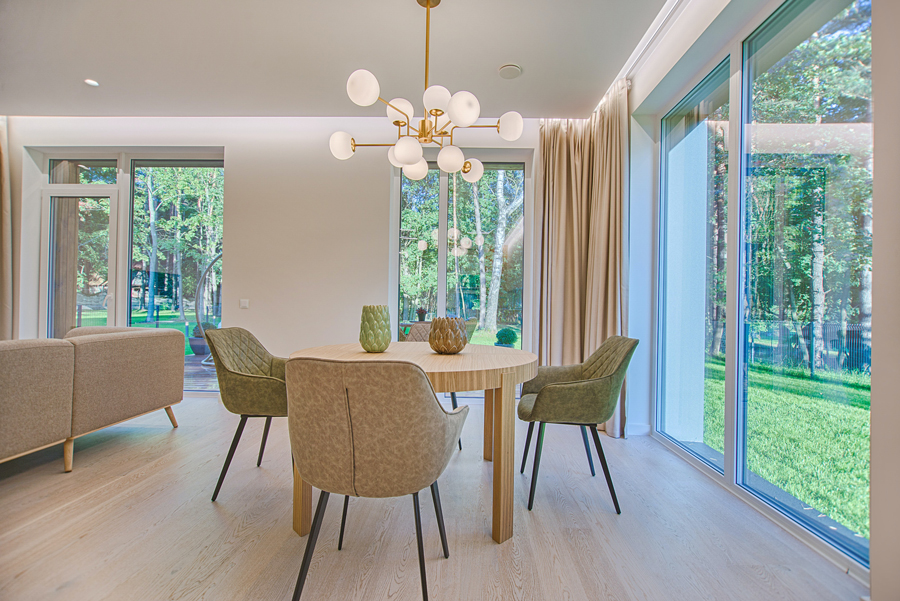How healthy is your home? This is something you should be asking yourself regularly physically if you have people living with you who have allergies or illnesses that can be exacerbated by poor air quality or hygiene. Household air pollution caused over 3 million deaths in 2020 and is a leading cause of increased levels of illness in adults and children around the world.
While we spend a lot of time ensuring our homes are clean from bacteria and dirt, how often do you check the air quality, and how can you ensure your home is healthy for everyone living there?
This post looks at some things you can do to improve the health of your home and ensure it is safe for everyone living there.
Look out for mold
Sadly, mold is an extremely common issue for homeowners and commercial properties. Surveys suggest that around 47% of homes in the US have dangerous mold levels, and 21% of asthma cases can be attributed directly to this issue.
Excessive water levels cause mold and dampness. This can be from various reasons, including leaking pipes, water seeping through walls, rising dampness, or rainwater flooding basements. Signs you have mold in your home include a rotten smell, black growth on your wall, wet walls, spots on clothing, warped walls, fungus, and persistent coughs and colds you cannot shake. Mold can be extremely difficult to get rid of, and first, you need to resolve the issue causing the dampness before then addressing the damp and mold issue itself. It is likely you might need to call in the professionals to find out how long does mold remediation take and what your next steps are. But it is vital you address this issue as soon as possible.
Take shoes off
Taking your shoes off when entering your house is something many people see as a long outdated tradition. For others, it is a rule to live by. But there is some sound reasoning behind this rule, and enforcing it in your home can help you to keep it cleaner and more hygienic.
When you are outside, your shoes will come into contact with many different substances, and you can then track this back in your home if you keep them on indoors. While it can seem rude to ask guests to remove their shoes, it is your house, and asking people to take their shoes off at the door can help you to keep your home looking, feeling, and smelling clean and reduce cross-contamination where possible.
Use HEPA filters
HEPA is an acronym for high-efficiency particulate air, and a HEPA filter filters out particulate air within your home. In theory, this type of filter can safely remove up to 99.97% of dust, mold, bacteria, pollen, and other airborne particles from your home.
These particles are trapped and not released back into the air. HEPA filters can also be effective against cigarette smoke, pet dander, and cooking smells too. HEPA filters can be used in vacuums, cleaning devices, HVACs, near vents and doorways, and in many more areas of the home for cleaner fisher air and reduced levels of contaminants.
Clean or remove carpets
When was the last time you cleaned your carpets? Dirt, dist pollen, dander, and more can get trapped in the fibers, and even if you vacuum frequently, you can still leave behind small particles. A HEPA filter vacuum can give a cleaner clean, but cleaning your carpets can be beneficial to remove stubborn dirt and stains and give your carpets a clean, fresh smell. Use an antibacterial carpet cleaner to help you ensure a better clean and remove bacteria that might be lurking.
Alternatively, removing carpets altogether can give you a cleaner home that is healthier. It is easier to clean and maintain wooden flooring, vinyl, laminate, tiles, etc., and you can eliminate trapped dirt and dust in carpets. This can be beneficial for those living with allergies as it removes one of the main attractants for pollutants in the home and can allow you to breathe easier without worrying about what might be lurking on the floors.
Use an air purifier.
Contrary to popular belief, plants do little to purify the air at home. Scientists have conducted studies, and while some plants hold air-purifying properties, they aren’t enough to rely on at home. With this in mind, investing in an air purifier can be highly beneficial to improving the health of your home.
Air purifiers can come in different sizes and strengths and can be highly beneficial to your home. Much in the same way, HEPA filters in appliances in your home can remove particles, so too can air purifiers to help you remove smoke, smells from cooking, contaminants from cleaning or personal care items, and much more. While nothing is stopping you from adding copious amounts of plants to your home, adding an air filter can give you an extra layer of protection too.
Use natural cleaning products.
Many cleaning products contain high levels of chemicals that can pollute the air in your home. From detergents to laundry power, air fresheners, and more, when you clean your home, you unwittingly add more chemicals to the air, decreasing the air quality inside your home. Use eco-friendly cleaners or products from around your home, such as lemons, aloe, tea tree, white vinegar, and baking soda, to help clean your house. This way, you still get a sparkling clean home but without the chemicals that go with commercial products.
You can check online for popular recipes and products to use and different ideas on ways to clean your home naturally using ingredients such as these and more.
Conclusion
Ensuring your home is clean, healthy, and hygienic can be a lot of work but getting started and knowing what you should and shouldn’t do can help you to make the best choices for your home and avoid overplotting the air and identify any issues that can affect the air quality and negatively affect your health and that of your family too.






